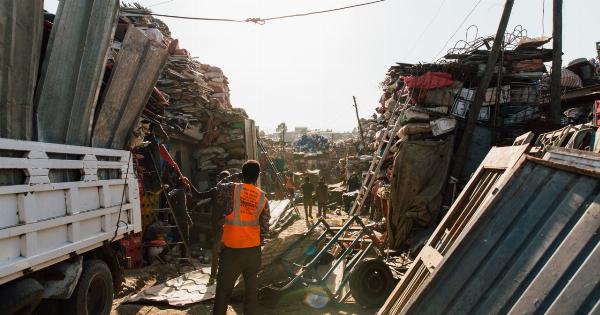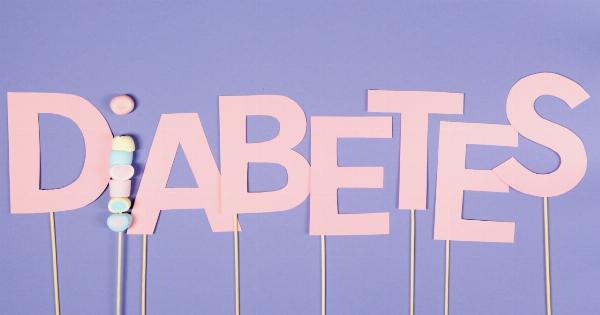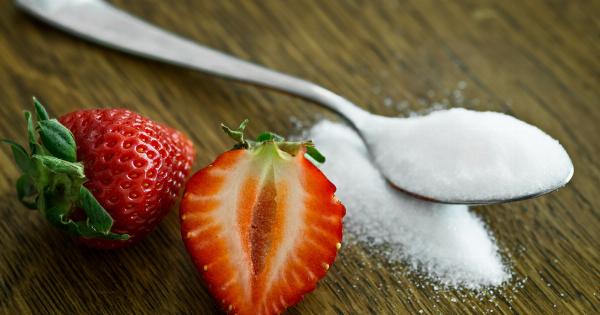When it comes to preventing or fighting cancer, many people tend to overlook the role of nutrition. However, there is a strong link between what we eat and our risk of developing cancer.
Certain foods can promote the growth and spread of cancer cells, while others can help protect against the disease. In this article, we will explore some of the foods that can promote cancer and understand the connection between nutrition and disease.
1. Processed Meats
Processed meats, such as hot dogs, sausages, bacon, and deli meats, have been classified as a Group 1 carcinogen by the International Agency for Research on Cancer (IARC).
This means that consuming these meats can increase the risk of developing colorectal cancer. The high levels of salt, nitrates, and other additives in processed meats are believed to contribute to the development of cancerous cells.
2. High-Fat Foods
A diet high in saturated and trans fats has been linked to an increased risk of various types of cancer, including breast, colorectal, and pancreatic cancer.
These fats can promote inflammation and oxidative stress in the body, both of which are linked to the development of cancer. Avoid or limit foods such as fried foods, fatty cuts of meat, butter, and full-fat dairy products.
3. Sugar and Refined Carbohydrates
Consuming too much sugar and refined carbohydrates, such as white bread, white rice, and sugary beverages, can have a negative impact on your health.
These foods can lead to obesity, which is a known risk factor for several types of cancer, including breast, colorectal, and pancreatic cancer. Additionally, sugar can fuel the growth of cancer cells and promote inflammation in the body.
4. Artificial Sweeteners
While artificial sweeteners are often promoted as a healthier alternative to sugar, research suggests that they may still have negative effects on our health.
Some studies have found a possible link between artificial sweeteners and an increased risk of cancer, particularly bladder cancer. It’s best to limit or avoid artificial sweeteners and opt for natural sweeteners in moderation, such as stevia or honey.
5. Alcohol
Excessive alcohol consumption has been linked to an increased risk of several types of cancer, including breast, liver, mouth, throat, and colorectal cancer.
Alcohol can damage DNA, impair the body’s ability to metabolize nutrients, and weaken the immune system. It’s important to drink alcohol in moderation, or better yet, avoid it altogether.
6. Grilled and Charred Foods
When meats, poultry, or fish are cooked at high temperatures and produce charring or become overly charred, they can form heterocyclic amines (HCAs) and polycyclic aromatic hydrocarbons (PAHs).
These chemicals have been found to be carcinogenic and have been linked to an increased risk of cancer, particularly colorectal, pancreatic, and prostate cancer. To minimize exposure, avoid excessive charring and marinate meat before grilling.
7. Sodas and Sugary Drinks
Sugary drinks, including sodas, energy drinks, and fruit juices with added sugars, have been associated with an increased risk of obesity, type 2 diabetes, and certain types of cancer.
These beverages provide empty calories and can lead to weight gain and an increased risk of developing cancer. It’s best to opt for water, herbal tea, or freshly squeezed juices without added sugars.
8. Excessive Salt Intake
Consuming too much salt or high-sodium foods can increase the risk of developing stomach cancer. Salt-preserved foods, pickled vegetables, and processed snacks are all high in sodium and should be consumed in moderation.
High salt intake can lead to inflammation and damage to the stomach lining, which can increase the risk of cancerous cell growth.
9. Genetically Modified Foods
Genetically modified organisms (GMOs) have been a topic of debate for their potential impact on human health.
While the research is still inconclusive, some studies have suggested that GMOs may have negative effects on our health, including an increased risk of developing cancer. To reduce exposure to GMOs, choose organic foods or look for products labeled as non-GMO.
10. Low-Fiber Foods
A lack of dietary fiber has been associated with an increased risk of colorectal cancer. Fiber plays a crucial role in maintaining digestive health and promoting regular bowel movements.
Without enough fiber, waste products can accumulate in the colon, potentially leading to the development of cancer. Incorporate fiber-rich foods into your diet, such as whole grains, fruits, vegetables, and legumes.
Conclusion
While there is no magic diet to prevent cancer, the link between nutrition and disease should not be ignored.
By avoiding or limiting foods that can promote cancer and focusing on a balanced diet rich in fruits, vegetables, whole grains, and lean proteins, you can reduce your risk of developing cancer and improve your overall health. Remember, it is essential to consult with a healthcare professional for personalized dietary recommendations and to develop a comprehensive approach to cancer prevention.


























